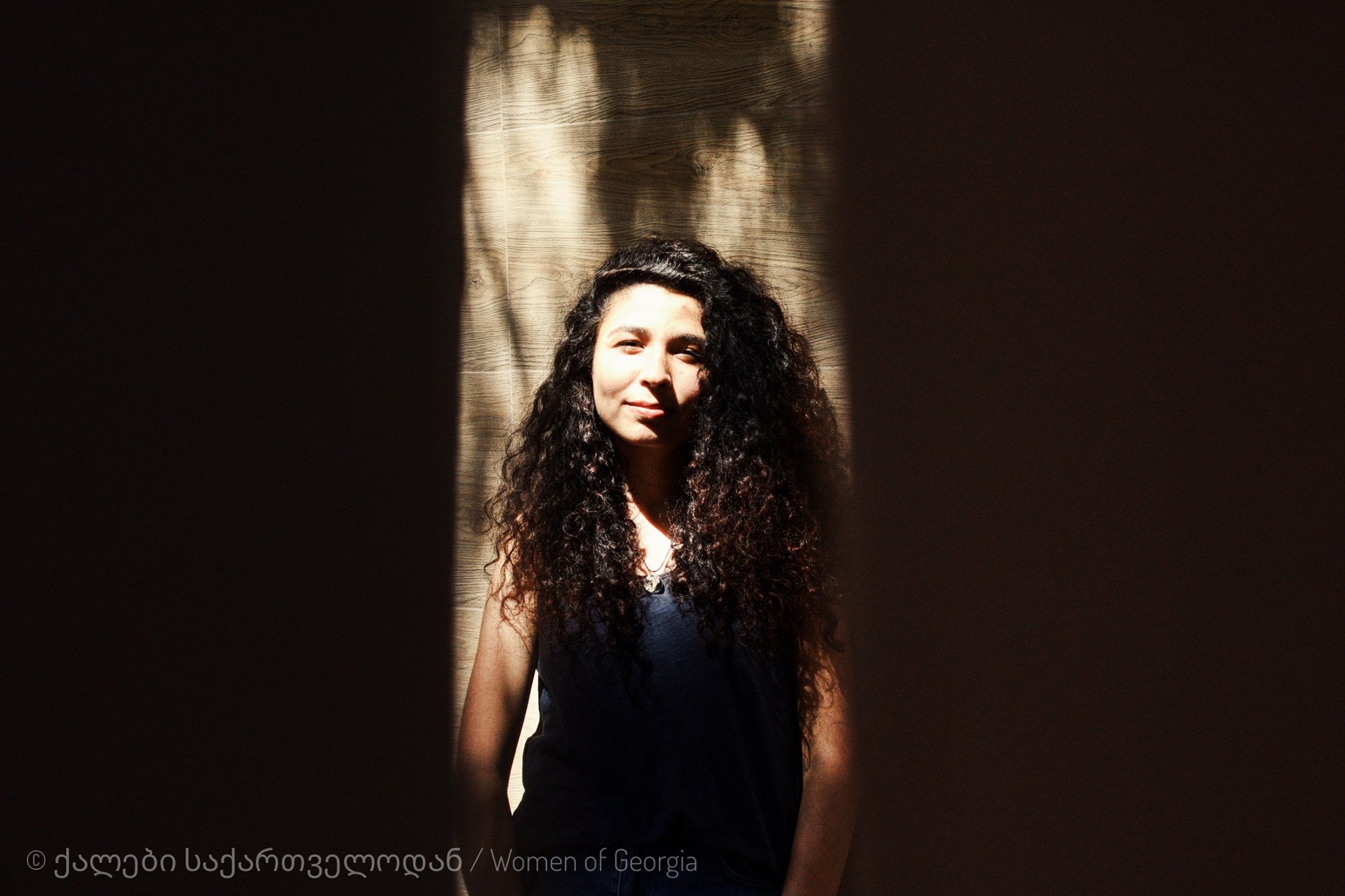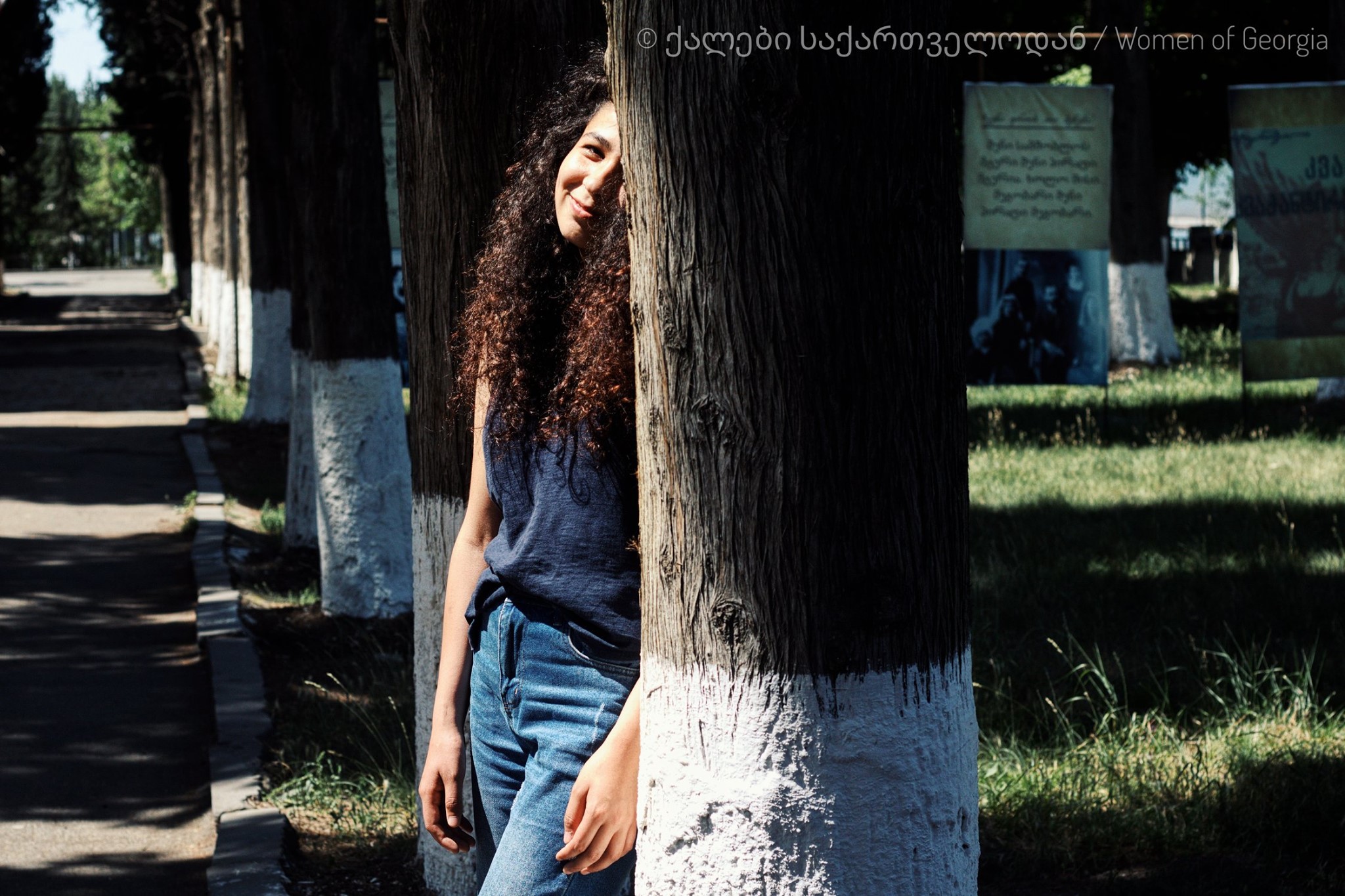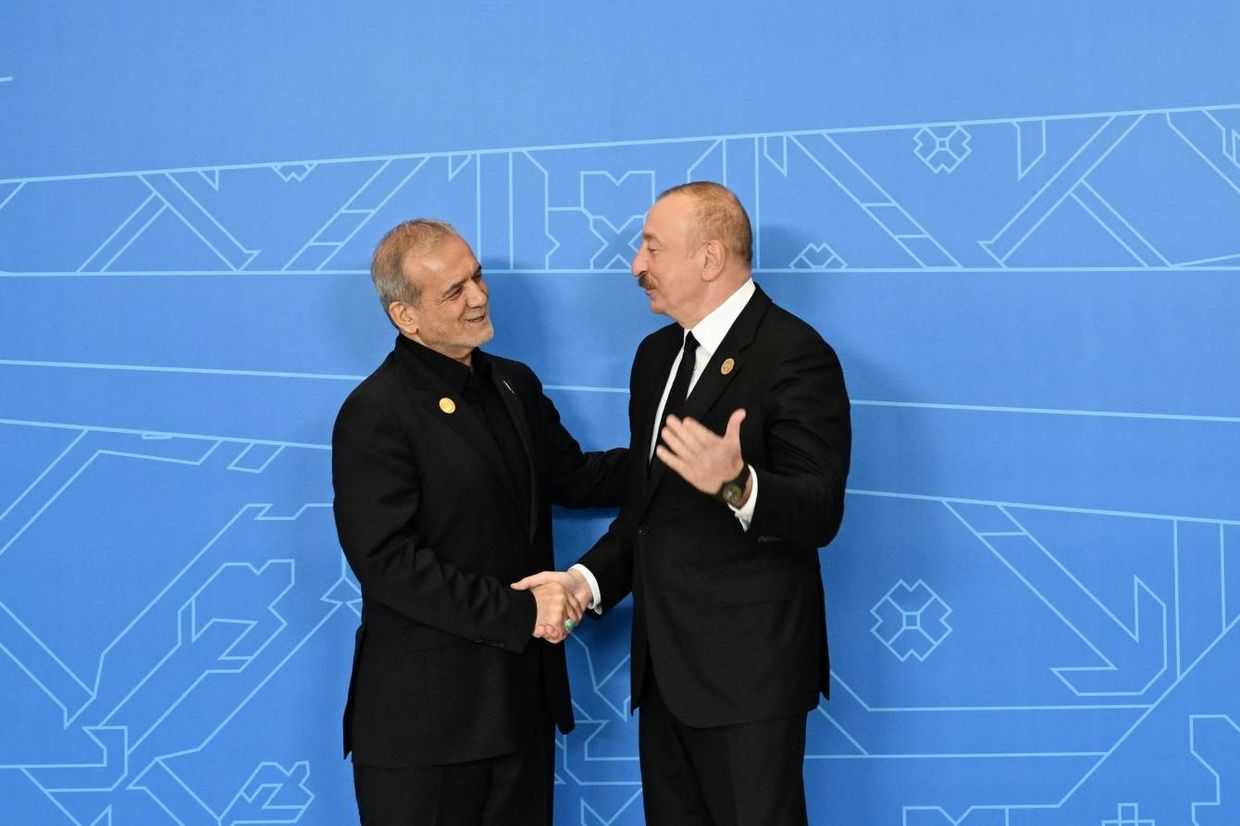
Gulgun Mamadli, 22, talks about her childhood in Marneuli, her student years in Tbilisi, and experiencing xenophobia and hate speech during the pandemic.
“Who are these strange people and in which country do they live?” — I was 6 years old when I first heard this question.’
‘Back then, everyone had financial issues in the village. It was especially difficult in winter and spring. I prayed summer would come soon and that “strangers” would come to our village. I loved strangers. I believed that God was sending them to us from an imaginary country to buy our crops and we would have money. I loved their language too. It sounded very beautiful, like a song.’

‘In the summer, to help my parents sell the crop, I would go out in the afternoon heat and look for signs of the strangers. When I would see their truck, I would run happily to them and say in Azerbaijani “we have tomatoes, cucumbers, we have beans! Come, buy it from us! Come!”.’
‘Then they would stop the car and smile. I would quickly run home and call my father, announcing they had arrived. I was very happy to help my parents. Once, I asked my father who these “foreigners” were, and what country they lived in. My father laughed and answered that they were Georgians and live here in Georgia. This was very confusing for me. If they lived in Georgia, where were their houses? In my imagination, Georgia was only Marneuli.’
‘The years passed and I grew up. I didn’t know Georgian language well. At school, our Georgian language teacher was Azerbaijani and he didn’t speak the language well. Nobody visited us in the village except Georgian merchants, but everything changed after the 8th grade, when Georgian language teacher Nana Chuntishvili arrived in our village.’
‘Our lives have changed for the better since then. Nana was a hero to us. She stayed in the village from Monday to Thursday and taught us Georgian with great enthusiasm. She told us that we were the future and worthy children of our homeland — Georgia — and for that, we must learn Georgian. She also told us that we should be curious and that the most valuable feeling in this world is love…’
‘I had my little world in the village, where there was friendship and love’
I graduated from a school in 2016, started studying at Tbilisi State University, and with it, a new stage of my life began. I had my own little world in the village, where there was friendship and love. I thought it would be like that everywhere, but I had to experience a different reality in Tbilisi.’
‘I was away from home and my parents and felt alone. At first, I was even scared of the subway. I felt bad when I saw homeless elderly people. I was embarrassed if I saw lovers kissing each other on the street. I had lived in an absolutely different cultural environment and suddenly, found myself in another world. However, the most difficult thing for me was to realise that not all people in Tbilisi looked like my teacher, Nana.’
‘Once I was on the bus and I was talking to my father on the phone. I noticed that two women were looking at me differently. Then I heard them talking loudly — “They are Tatars, they’ve lived here for centuries, but they don’t know Georgian and don’t respect us. We should throw them out to this country to their country.” I got off the bus quickly and tried not to pay attention to it.’
‘Nana had taught us to love and respect. I didn’t know that a person could be a victim of hatred for having different nationalities or religions. All of this had a bad influence on my psyche and self-esteem. Until the second year, it was difficult for me to communicate with other students — I thought because I was Azerbaijani, Georgian young people stood above me. However, I felt a lot of support from my Georgian friends at university and this motivated me.’
‘My Georgian friends are very important to me’
‘I had just started my studies and one of the professors didn’t know that I was a Muslim. The lecture was about The Middle East and Islamic countries. I remember he said with hatred that during Ramadan and Bairam Muslims are hungry for the whole day and in the evening, they stuff everything in their mouths.’
‘When I heard that I felt so bad, I couldn’t say anything. I wondered how an educated person could have thought something like that. I stared out of the window during the lecture to avoid looking at the professor. When the lecture was over, he asked me mockingly, “You haven’t said a thing the entire lecture, were you asleep?!” I was so nervous, I mumbled something and still couldn’t fully explain why I was silent.’
‘Then he asked those of us attending the lecture that day to register our names. I went first to his desk and wrote my name — Gulgun Mammadli. He looked at me worryingly, but I didn’t take my eyes off him.’

‘The next lecture was about the same topic but he said the exact opposite — that scientists have found that Ramadan is healthy for the human body. I continued choosing his courses later, but I was still heartbroken.’
‘I remember another case from university in which one of my groupmates said she was dissatisfied that the number of Azerbaijanis was growing in Georgia. That day I felt a lot of support and strength from my other friends — they had a negative reaction and said it was a shame to say something like that.’
‘My Georgian friends are very important to me. They always stood by my side and told me that there are bad people everywhere and that xenophobia and hate speech doesn’t know nationality; that I shouldn’t pay attention to this and work hard to succeed. They assured me that I had the power to change people’s lives for the better.’
‘My success not long after also confirmed this — in December, a film festival was held in Tbilisi where my documentary won the competition for 90-second films. In September 2020, this film will be screened in a British film festival where it will represent Georgia. Yes, I became the representative of Georgia, not Azerbaijan, in the UK. This makes me very proud.’
‘Hate speech and xenophobia are serious problems in Georgia’
‘Quarantine was the most difficult stage of my life. When Marneuli was locked down and declared a red zone, xenophobia against ethnic minorities, and especially against Azerbaijanis, intensified. Social networks were full of xenophobic statements — “Tatars are uneducated and the virus has spread because of them”, “we should kick them out from Georgia, they should go to their own country!”, “They’ve been living here for so long and don’t speak Georgian”, etc.’
‘Quarantine showed me that hate speech and xenophobia are serious problems in Georgia. The government doesn’t react to it and at the same time, they say that Georgia is a tolerant and diverse country. These are just words — instead, they should take effective steps against xenophobia.’
‘After declaring Marneuli and Bolnisi quarantine zones, we, the Azerbaijani youth, started a kind of “challenge” against the discriminatory posts: “I’m from Marneuli, ethnically Azerbaijani, and I know the Georgian language. I follow the rules and stay at home!” ’
‘I regret now that I was part of this challenge. This challenge was to justify ourselves in front of the public and to prove that we don’t violate the restrictions and we know the Georgian language. But people didn’t realise that Coronavirus doesn’t recognise religion and nationality.’
‘All ethnicities can be irresponsible and one person’s irresponsibility cannot be generalised to a whole nation.’
‘The older generation of ethnic minorities don’t speak Georgian well. They were educated in Soviet times, in Russian. Azerbaijanis especially were not taught the Georgian language. Since 2010, the education system has changed and improved a lot. Young Azerbaijanis know Georgian, are active, and are trying to improve society.’
‘To me, human love stands above everything else. I have Armenian and Georgian friends. I go to churches, synagogues, and mosques and I feel god everywhere. I value people according to their humanity and not their religion, nationality, or sexual orientation. For me, Georgia is a country of people where ‘strangers’, my teacher Nana, and my friends all live.’
This is a partner post written by Gulgun Mamadli and translated by Mariam Kajrishvili. The original version first appeared on Women of Georgia on 12 August 2020.






